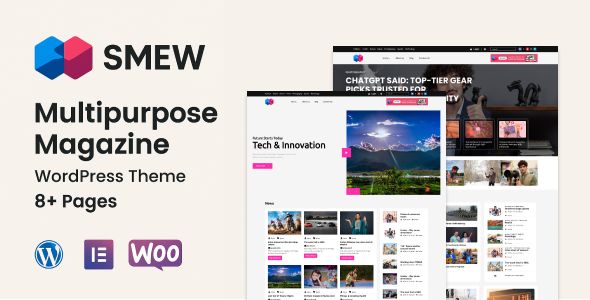Gayu – Yoga WordPress Theme

- Description
- Reviews (3)
- FAQ

Why this edition changes the way yoga sites get built
Yoga brands aren’t static; they breathe with seasons, festivals, teacher rotations, workshops, and membership drives. You might run an airy neighborhood studio, teach private sessions across town, host weekend retreats, and experiment with online classes—all at once. The fast way to support that rhythm is a theme that feels premium on day one and doesn’t slow you with license gating. This Gayu – Yoga WordPress Theme edition keeps every premium capability intact while removing the usage ceilings that typically waste your time: use on unlimited sites and environments, single, one-time purchase, all Pro features included, and updates that move in step with the official release. No remote activation, no “demo importer locked” surprise, no seat juggling when you spin up a retreat microsite or a permanent staging clone for experiments.
The result is calm momentum: launch the main studio site, a teacher portfolio, a retreat landing page, and an online-classes hub—then iterate freely as your offering and community evolve.
What Gayu is (and the studio problems it actually solves)
Gayu – Yoga WordPress Theme is an elegant, practice-first theme designed for yoga studios, teachers, and wellness collectives. It emphasizes breath-worthy visuals, readable schedules, clear pricing, and low-friction bookings. It addresses five recurring pain points in yoga and wellness sites:
-
Schedules that confuse rather than clarify. Gayu’s timetable blocks show class names, levels, teachers, rooms, and booking buttons in one glance, with filters for level, style, and location that actually work on phones.
-
Memberships that feel opaque. Pricing tables and pass options are framed in plain language (“10-Class Pass,” “Monthly Unlimited,” “New Student Special”), with benefit bullets and small print placed where decisions happen.
-
Retreats/workshops that need their own storytelling. Dedicated event layouts hold itinerary, inclusions, rooms, meals, FAQs, and a clear “Reserve my spot” flow with deposits when needed.
-
Teacher pages that earn trust. Bio sections connect lineage, certifications, playlists, and teaching philosophy with upcoming classes and private-session CTAs.
-
Online class experiences that don’t fight you. Clean VOD and livestream layouts, session archives by style and duration, and a members’ area you can gate without duct tape.
Because this is the unlimited-use edition, none of those features sit behind activation keys. Everything is ready to use after install.
Who benefits most from Gayu
-
Neighborhood studios with rotating schedules, pop-up classes, and a mix of drop-ins, passes, and memberships.
-
Independent teachers who need a site that blends in-person privates, corporate sessions, and on-demand classes.
-
Multi-location brands managing two or more studios, shared teachers, and region-specific timetables.
-
Retreat leaders and training schools selling weekend intensives, 200/300-hour programs, and seasonal retreats.
-
Wellness collectives mixing yoga with pilates, mobility, meditation, breathwork, sound baths, or Ayurveda.
-
Agencies that ship many wellness sites and want a theme they can deploy across unlimited client domains and always-on staging environments.
Design system & UX: slow breathing, fast decisions
Above-the-fold calm.
A quiet hero (soft color gradients or natural textures), a concise proposition (“Practice that meets you where you are”), and two primary CTAs: View schedule and Start for $X (or Try a free class). A thin trust strip can hold a “New student intro,” studio address with map modal, and “First class free” without stealing focus.
Cards that carry meaning.
-
Class cards: style, level, teacher, duration, room, capacity indicator, and a one-tap Book.
-
Plan cards: price, what’s included, renewal cadence, freeze rules, guest passes, and a tiny “Fine print” expander.
-
Event cards: dates, location, spots left, deposit note, and a persuasive subline (“3 days to reset and reconnect”).
Timetables that actually help.
Day and week views with filters for location, class level (Beginner, Open, Intermediate), style (Hatha, Vinyasa, Yin, Restorative, Ashtanga, Prenatal, Meditation), and teacher. Each row shows a start time, the style/level, and a book button that doesn’t jump the layout.
Teacher pages that feel human.
A portrait that breathes, a “How I teach” paragraph, certifications/lineage, a playlist link if you like, Upcoming classes, Private session CTA, and a small gallery. The goal is trust, not hype.
Pricing clarity without pressure.
Three primary plans (Intro, Unlimited, Class Pack) and two secondary (Drop-in, Student/Senior), all transparent. “Freeze anytime” and “Cancel online” appear near the CTA so a visitor doesn’t need to hunt policy pages.
Online classes that respect attention.
A 60–90-second trailer near the hero, category chips (Style, Duration, Goal), and a quick filter (“Under 20 minutes,” “No props,” “Energy boost,” “Evening wind-down”). For livestreams, a countdown and calendar add button sit by the Join live CTA.
Information architecture for real practice operations
-
Locations (if multi-studio): address, hours, amenities (mats, showers, lockers), parking/transit guidance, and photos.
-
Classes & styles: clear descriptions, level expectations, what to bring, and who it’s for.
-
Teachers: bios with upcoming classes and private-session booking links.
-
Schedule: day/week views; filters by location, level, style, teacher.
-
Pricing & memberships: passes, memberships, intro offers, gift cards, corporate programs.
-
Online classes: livestream, VOD, programs/series (e.g., “Back Care 10-Day”).
-
Events: workshops, retreats, teacher trainings, sound baths, seasonal gatherings.
-
Blog & resources: breathwork basics, home practice tips, meditation primers, pose breakdowns.
-
Policies: cancellations, late arrivals, membership freezes, studio etiquette.
-
Contact & FAQ: practical answers near forms; map modal with directions.
Everything interlinks: class → teacher → schedule; teacher → pricing (“See my private rates”); event → accommodation FAQ; online class → related series.
Memberships, passes, and honest micro-copy
Intro offer: “2 weeks for $X—unlimited classes, no commitment.”
Monthly unlimited: include freeze rules, guest passes, discount for workshops.
Class packs: 5/10/20 class packs with expiry (printed clearly) and top-up reminders.
Drop-in: “Book now,” hinting at savings via pass.
Corporate & student: ID or email domain notes, without friction.
Micro-copy tone remains kind and factual. If there are reformer/pilates add-ons or specialty rooms, call them out early.
Online classes & hybrid reality
-
Livestreams: schedule block with timezone awareness; one-tap Add to calendar; “What you’ll need” (mat, blocks, strap).
-
VOD library: grid by duration/style; “Start here” row for beginners; “No-sweat evening” and “Morning energy” playlists.
-
Programs: structured multi-day series with progress tracking; friendly completion badges.
-
Members’ area: a quiet, ad-free layout with quick resume and “Mark complete.”
-
Accessibility: captions, audio descriptions where helpful, and calm color contrast for evening viewing.
Retreats, workshops, and teacher trainings
Retreat pages should read like a promise you can keep:
-
Essentials: dates, location, what’s included/not included, accommodation tiers, meals, travel notes.
-
Itinerary: day-by-day rhythm; room for “free time.”
-
Teachers: short bios and why this retreat is theirs to lead.
-
Booking: deposit vs. balance, payment windows, refund windows, and “what if I can’t travel” policy.
-
FAQ: weather, dietary needs, roommates, wi-fi, yoga level expectations, travel insurance suggestion.
Teacher training pages list curriculum modules, contact hours, accreditation, reading lists, assessments, and “who it’s for” with honesty (“Strong practice recommended for 300-hour”).
Photography & motion that feel like breath
-
Light: soft and natural over heavy filters.
-
Angles: include non-poses—moments between shapes.
-
Diversity: ages, bodies, abilities, and clothing that feels normal.
-
Video: 8–12 second loops that don’t stutter; respect prefers-reduced-motion.
The theme’s galleries and hero blocks are tuned to minimize layout shift and keep pages fast on phones.
Performance, accessibility, and SEO that quietly compound
-
Core Web Vitals: responsive images, predictable typography, and low CLS timetables.
-
Accessible controls: large tap targets, visible focus states, ARIA for schedule filters and accordions.
-
Structured data: LocalBusiness/Organization, Event (workshops/retreats), FAQ, Product for memberships/passes, Breadcrumb.
-
Internal linking clusters: classes ↔ teachers ↔ schedule, events ↔ teachers, online classes ↔ programs.
-
Heading hygiene: one H1; clear H2s for Schedule, Pricing, Teachers, Events, Online; avoid empty headings.
Demo import & customization—no roadblocks
Out of the box, Gayu – Yoga WordPress Theme includes:
-
Homepages: studio-first, teacher-first, online-first, retreat-led.
-
Schedule templates with mobile-first booking actions.
-
Class/style pages with level guidance and “What to bring”.
-
Teacher profiles with upcoming classes and private session CTAs.
-
Pricing including plans, passes, gift cards, corporate.
-
Online classes (VOD + livestream).
-
Events (workshops, retreats, trainings).
-
Blog/Resources, FAQ, Contact, Locations.
In this edition, the demo importer and premium blocks are ready to use after install—no remote activation, no domain limits.
Operations edge: what unlimited usage means every month
-
Microsites without meetings: launch a retreat sub-site or a 21-day program hub without asking for another license seat.
-
Permanent staging: keep a live clone to test new schedule filters, pricing copy, and homepage layouts.
-
Multi-location sanity: give each studio its own section and timetable while sharing the same design tokens.
-
Predictable updates: releases here sync with the official theme, so you can stage, smoke-test, and roll on your cadence.
-
No vendor lock-in: move hosts/CDNs or switch builders without breaking features.
Setup guide (from blank server to live studio site)
-
Provision WordPress with HTTPS, caching, backups, and image optimization.
-
Install & activate Gayu – Yoga WordPress Theme.
-
Enable recommended companions (blocks/widgets/demo importer).
-
Import the closest demo (studio, teacher, online, or retreat).
-
Set brand tokens (logo, color palette with AA contrast, typography that reads well).
-
Create core pages: Home, Schedule, Classes/Styles, Teachers, Pricing, Online classes, Events, Locations, FAQ, Contact.
-
Build schedule data (class styles, levels, rooms, teachers) and connect booking buttons to your system.
-
Add pricing (intro, unlimited, packs, drop-in), with clear policies.
-
Publish teacher bios with at least one authentic photograph each and upcoming classes.
-
Load online classes (at least 12 VOD to start) and schedule a weekly livestream.
-
Publish two events (a basic workshop and a community class) to validate flows.
-
QA on mobile: booking taps, schedule filters, membership checkout, livestream countdown, captions.
-
Launch and set a content cadence (weekly blog, monthly workshop/retreat post, seasonal pricing check).
Content ideas that build a community (and steady bookings)
-
Pose primers (“Five ways to approach backbends without forcing it”).
-
Breathwork series (short reads with simple at-home practices).
-
Beginner path (four-week plan with practice tips and video links).
-
Seasonal practices (“Grounding sequences for autumn,” “Cooling midday flow for summer”).
-
Teacher diaries (what they’re exploring this month; a human paragraph is enough).
-
Injury-smart practice (with discretion—always suggest consulting healthcare providers).
-
Mini-retreats at home (playlist, tea, one long practice, one journal prompt).
-
Member spotlights (kind, consented stories that normalize different bodies and goals).
Each post ends with a gentle, relevant next step: Book a beginner class, Try a 15-minute wind-down, or Reserve a workshop seat.
Multisite & unlimited usage—practical patterns
-
Two-studio constellation:
eastside.example.comandwestside.example.com, shared teachers with location-specific schedules. -
Teacher portfolios under the same roof: teachername.example.com with their private-session booking and online class bundles.
-
Retreat minisites with their own imagery and itinerary structure.
-
Corporate wellness hub for B2B offers and inquiry forms.
-
Permanent sandbox for A/B testing hero copy, schedule layouts, and pricing tables.
All of these can remain online indefinitely—no seat counting or reauthorization.
Troubleshooting playbook (yoga sites hit these often)
-
High bounce on Schedule: make Today the default view; add “Next available classes” and a one-tap filter (“Beginner-friendly”).
-
Confusion about levels: add short level chips on class cards; link to a “What the levels mean” explainer.
-
Underused memberships: show a “Most choose this” note on Monthly Unlimited; compare against two packs with real math (e.g., “4+ classes/month saves $$”).
-
Workshop no-shows: send an SMS reminder, allow waitlist, and repeat the “What to bring” list in the reminder.
-
Livestream attendance drops: move the countdown higher, offer a replay window, and list props early.
-
Slow LCP on hero: swap video for a still on mobile; compress hero and defer offscreen images.
-
Accessibility flags: verify button contrast on pastel backgrounds; keep focus rings visible; label every form field.
-
Teacher pages not converting privates: add a friendly paragraph “How a private session works” and a 30-minute intro slot at a gentle rate.
Why this licensing model outperforms subscription keys for yoga brands
Subscription keys often limit domain activations, gate demo importers, or degrade premium blocks after renewals. This edition of Gayu – Yoga WordPress Theme is built for ownership and pace:
-
Unlimited sites & environments (production, studios, teacher microsites, retreats, permanent staging).
-
All premium features included—not a lite cut.
-
Updates synced with the official release—you choose the rollout after staging.
-
Ready after install—no remote activation to start building.
-
No lock-in—change hosts, CDNs, or builder stacks freely.
For a practice built on routine and presence, freedom from license friction is a quiet superpower.
Frequently Asked Questions
Q1: What exactly do I receive with this edition?
The full Gayu – Yoga WordPress Theme package—premium templates, timetable blocks, event layouts, online-class pages, teacher profiles, pricing tables—all Pro features included.
Q2: Do I need a key to import demos or unlock layouts?
No. It’s ready to use after install. Demos and premium blocks are available without any remote activation.
Q3: Can I use it on unlimited sites, including staging and a Multisite network?
Yes. Unlimited usage is a core advantage—great for multi-studio brands, teacher portfolios, retreat minisites, and permanent staging.
Q4: How do updates work over time?
Updates sync with the official release cadence. Stage first, run a quick smoke test (booking, schedule filters, pricing), then update production—no renewal prompts.
Q5: Is this a reduced or “lite” build?
No. You get the complete premium feature set that defines Gayu – Yoga WordPress Theme.
Q6: Will it integrate with my booking, forms, and video stack?
Yes. Layouts avoid hard lock-ins. Connect your preferred booking tool, forms plugin, and video host; the theme focuses on front-end polish.
Q7: Can I run both in-person schedules and online classes?
Absolutely. Use the timetable layouts for in-person classes and the online library for livestream/VOD; each has clear CTAs.
Q8: Does it support translations and RTL?
Yes. Interface strings are translation-ready, and RTL layouts are supported.
Q9: How can I reduce cancellations/no-shows?
Clarify cancellation windows on class pages, send SMS reminders, and allow easy rescheduling when capacity permits.
Q10: Can teachers manage their own bios and sessions?
Yes. Create teacher pages with upcoming classes and a private-session CTA. Editors can update content without touching code.
Q11: Will anything break if I move hosts or CDNs?
No. There’s no remote handshake to reauthorize; your site remains fully functional across migrations.
Q12: Can I keep a permanent sandbox for experiments?
Yes. Unlimited usage means your staging site can live indefinitely for A/B tests, seasonal redesigns, and copy experiments.
Q13: How do I present pricing without overwhelming new students?
Use three main options (Intro, Unlimited, Pack) and tuck details behind light accordions. Place “New here? Start with Intro” near the top.
Q14: Is there a way to showcase beginner-friendly paths?
Yes. Create a “Start here” page linking to beginner classes, a short video series, and a friendly pose primer.
Q15: Do I get ongoing updates?
Yes. As upstream evolves, you’ll receive synchronized update packages to keep compatibility, performance, and components current.
Final word
A strong yoga site should feel like the practice—calm, clear, and quietly confident—while making real-world tasks easy: checking the schedule, booking a class, understanding memberships, and saying yes to a retreat or online program. Gayu – Yoga WordPress Theme brings that balance: soft, breathable visuals; timetables that don’t wobble; teacher pages that build trust; pricing that reads like a conversation; and online classes that invite consistent practice. This edition adds the freedoms studios and teachers rely on—unlimited sites, a one-time cost, all premium features, and updates in step with the official release—so your brand can move at the speed of your community, season after season, without license friction getting between you and the mat.
Share Your Valuable Opinions
Q: Do I need a license key?
A: No. All products are Pre-Activated. You can use 100% of the Premium features immediately.
Q: Can I use the One-Click Demo Import?
A: Yes, absolutely! We ensure the demo import feature works perfectly.
Q: Can I use the products on multiple websites?
A: Absolutely. The GPL license allows use on unlimited domains.
Q: Are the files safe?
A: Yes. All files are scanned by McAfee and VirusTotal before uploading.
Share Now!
















Gayu – Yoga WordPress Theme is good.
Perfect for my needs.
Nice job.